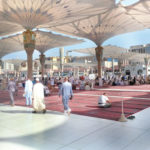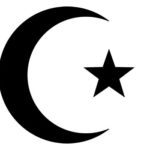
NO fewer than 494 residents of Lagos State benefitted from the disbursement of the sum of N108,276,905 at the 13th edition of the zakat distribution ceremony of the Zakat and Sadaqat Foundation (ZSF), held on Sunday in Ikeja, Lagos.
The Executive Director of the foundation, Prince Sulayman Olagunju, disclosed that the latest disbursement brought the total amount disbursed this year across nine states of the federation and the Federal Capital Territory (FCT), Abuja, to N148,069,905.
Prince Olagunju expressed delight that zakat funds were disbursed this year in three additional states of Delta, Ondo and Ekiti, saying the foundation was resolved to spread its activities to more states.
According to him, the 2017 zakat allocation and disbursement have revealed that the foundation is making progress in the area of economic empowerment by increasingly helping people to grow their small scale businesses and set up new ones.
“We have equally restored hope to those with health challenges by paying their hospital bills. We renovated a health centre and equipped it with modern toilet facilities and water storage system. Another health centre was provided with facilities such as laptop, printer, generator and a whole lot of medical facilities. We succeeded in restoring sight to many patients. Many surgeries were financed and two medical caravans were executed this year in rural areas,” the ZSF chief executive said.
Olagunju appealed to the beneficiaries to make the most of their allocations as they are a trust for which they will account in this word and the hereafter.
He expressed gratitude those who trust the foundation for the administration of their zakat and prayed Allah to increase their wealth.
At the ceremony, the Lagos State Commissioner for Home Affairs, Alhaji Abdul-Hakeem Abdul-Lateef, described zakat as an institution that should be harnessed to help underprivileged people in the society.
“Redistribution of wealth is something that can save the economy. We are not poor. It is just that we have refused to redistribute wealth. Members of civil society organisations, leaders as well as citizens generally can call for the institutionalisation of zakat to help the poor. Zakat is meant to help the needy, regardless of their religion,” Abdul-Lateef said.
He underscored zakat as a core religious duty for Muslims and advised organisations like ZSF to continue to show prudence and demonstrate accountability in order to encourage the government to come up with regulations for the mobilisation of funds for alleviation of poverty among Nigerians.
“When people hear of zakat, they believe it is an agenda to Islamise. It is far from it. It is something to help the Christians, to help the Muslims, to help everybody. All Nigerians, especially those who have enough funds, should begin the payment of zakat, come around organisations like this and sponsor bills in the House of Assembly, National Assembly, for the Federal Government to take it up,” the commissioner added.
The chairman of the University of Lagos Muslim Community, Professor Lai Olurode, said the state alone could not undertake the business of development and as such, zakat and sadaqat seek to “project the frontiers of citizenship” to ensure that many people are moved away from poverty.
Professor Olurode, who chaired the occasion, lamented that about 70 per cent of Nigerians today survive on less than $2 a day and therefore encouraged organisations like ZSF to continue to assist the government to enhance people’s life chances, regardless of religious inclination, “because poverty does not draw any boundary between people in terms of their religion or ethnicity.”
The chairman of the board of directors, Dr Tajudeen Yusuf, noted that the addition of three states to the list of beneficiaries this year showed that the foundation was meant for the generality of Muslims and not discriminatory against any state or group of people.
The chief Imam of Jama’atu Rahmat Islamiyyah, Ikeja, Sheikh Ahmad Adebayo Tejidini, delivered a lecture at the ceremony where he urged wealthy Muslims to prioritise zakat charity and also see the religious duty as of means to purify their wealth.





